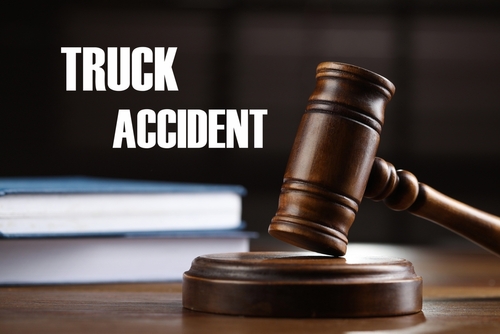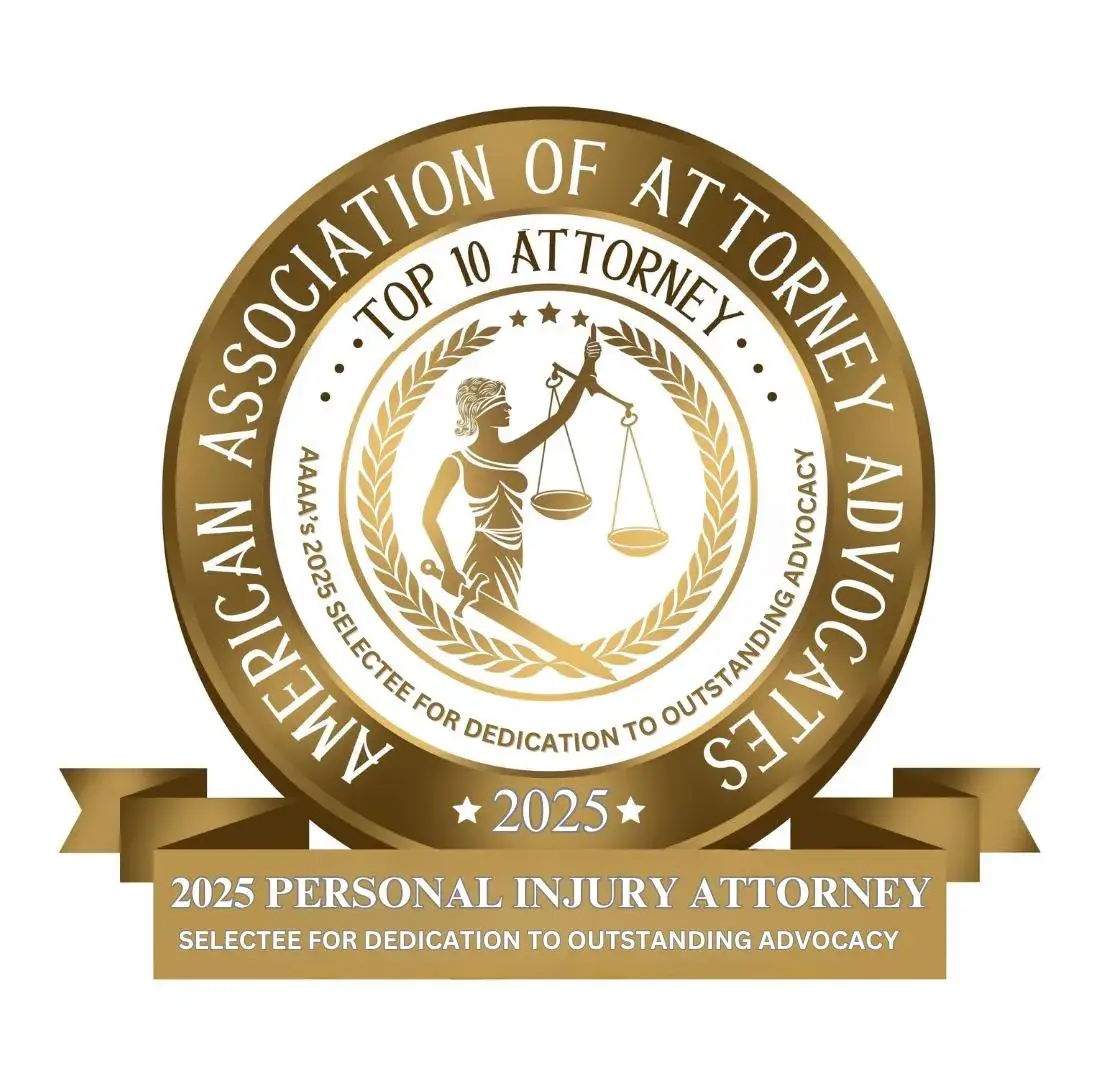
A Trucking Company’s Insurance Adjuster Will Call. Here’s Your Plan.
After a serious truck crash, your focus is on one thing: recovery. You are dealing with physical pain, emotional stress, and the disruption of your daily life. Then, your phone rings. It is a number you do not recognize, but you answer. On the other end is a friendly, professional voice introducing themselves as an insurance adjuster for the trucking company.
This call is the first step in the difficult financial journey that follows a crash. The adjuster’s job has begun, and you must understand their role to protect yours. Knowing what to do in these first interactions shapes the outcome of your claim and ensures your future is secure. Speaking with a Bergen County truck accident lawyer early can help you manage these conversations and safeguard your right to full compensation.
If you have questions about dealing with insurance adjusters after a serious truck crash, or what to do next, our team at Maggiano, DiGirolamo & Lizzi, P.C. is here to help. Call us at (201) 585-9111 for a no-cost discussion of your situation.
Key Takeaways for Dealing With Insurance Adjusters After a Truck Crash
- Be careful what you say. Your words will be used to minimize your claim. Anything you say to the trucking company’s adjuster is recorded and scrutinized to find reasons to reduce your compensation.
- Decline to give a recorded statement. You are not required to give a recorded statement to the other party’s insurer. Agreeing to one provides them with an opportunity to find inconsistencies in your story and question your credibility.
- Do not sign any documents without legal review. Early settlement offers and broad medical authorizations are traps. Accepting them forfeits your right to full compensation for future medical needs and allows the insurer to investigate your entire medical history.
The First Conversation: What to Expect and What to Say
The adjuster will likely explain that their purpose is to open a claim, gather some basic facts, and check on how you are doing. While they are typically polite and may sound genuinely concerned, they have a professional responsibility to their employer. Their goal is to manage the claim efficiently, which includes assessing the trucking company’s financial liability. Do insurance adjusters lie is a question many accident victims ask, and while they may not tell outright falsehoods, they often use carefully worded statements and selective information to reduce what their company has to pay.
The information they gather in this first call is part of their investigation. Anything you say is noted and used to evaluate your claim. For this reason, your first conversation should be brief and factual. You are in control of the information you provide.
A Simple Guide for the First Call
Do Say:
- “Thank you for calling. I am still processing what happened and am not ready to give a detailed statement.”
- “I can confirm my name, address, and the date of the incident.”
- “I am currently focused on my medical care.”
- “All future communication will need to go through my attorney.”
Don’t Say:
- “I’m feeling fine,” or “I’m okay.” The full extent of your injuries may not be apparent yet. Pain from serious conditions flares up days or even weeks later.
- “I think the accident happened because…” Avoid guessing or speculating about the cause of the crash. Stick only to the facts you know for certain.
- Anything that could be interpreted as admitting fault, such as “I should have seen the truck,” or “I might have been going a little fast.”
Should You Give the Adjuster a Recorded Statement?
One of the first things the adjuster will ask for is a formal, recorded statement. They will present this as a standard and necessary step to move your claim forward. It is anything but routine. This request marks a pivotal moment, and how you respond is significant.
A recorded statement is not a casual conversation. It is an official record that the insurance company will review meticulously. Adjusters are trained professionals who know how to ask questions that may seem harmless but are designed to elicit specific answers. A simple question like, “You were on your way home from work, correct?” might be followed by, “Were you tired?” The goal is to find information that could suggest you were fatigued or otherwise contributed to the collision.
Your memory of a traumatic event like a truck crash will likely be fragmented. Details you give in a statement, with the best of intentions, could later be contradicted by physical evidence from the scene, witness accounts, or traffic camera footage. These small inconsistencies are used to question your credibility down the road. Can a lawyer lie to me about a settlement is an understandable concern, but an attorney is bound by professional ethics and state bar rules to provide honest information about your case and any settlement offers.
You are not legally required to provide a recorded statement to the other party’s insurance company. The safest approach is to respectfully decline until you have had the opportunity to consult with an attorney. Simply state, “I am not comfortable providing a recorded statement at this time.”
The Adjuster’s Playbook: Three Common Tactics and How to Respond
Insurance adjusters use a set of standard techniques to manage claims.
1. The Quick, Low Settlement Offer
Within days or weeks of the crash, you might receive what seems like a substantial settlement offer. It is tempting, especially as medical bills start to arrive and you are unable to work. The adjuster may present it as a way to resolve things quickly and get you the money you need.
The risk is that this offer is made long before anyone knows the full extent of your injuries. A traumatic brain injury or a spinal cord issue might not present clear symptoms for some time. Accepting an early offer requires you to sign a release, which forfeits your right to seek any further compensation for this incident. If your condition worsens and you require surgery or long-term care, you cannot go back and ask for more. You could burn through the settlement limit quickly, watching your savings dwindle as medical costs continue to climb. How do insurance companies negotiate settlements often comes down to minimizing payouts, using early offers and pressure tactics to settle before the true costs of your injuries are known.
How to respond: Never accept a settlement offer without a complete medical diagnosis and a clear understanding of your future care needs. A proper response is: “I am still undergoing medical evaluation and am not in a position to consider any settlement offers.”
2. Requesting Broad Medical Authorization
The adjuster will ask you to sign a medical authorization form so they can obtain your medical records. This seems reasonable; they need to verify the injuries you sustained in the crash. However, the form they provide is almost always intentionally broad, giving them permission to access your entire medical history.
With this access, they will search for any pre-existing conditions. An old sports injury to your back from a decade ago could be used to argue that your current back pain is not a result of the truck crash. The goal is to connect your current symptoms to a past issue, thereby reducing the value of your claim.
How to respond: Do not sign any medical authorization without having an attorney review it. Your legal team will modify the authorization, restricting it to only the medical records directly related to the injuries from the crash.
3. Suggesting Shared Fault
The adjuster will ask questions designed to find any reason to assign a portion of the fault to you. New Jersey operates under a modified comparative negligence rule (N.J.S.A. 2A:15-5.1). This legal concept means your final compensation is reduced by your percentage of fault. If your level of fault is determined to be more than 50%, you are barred from recovering any compensation at all. Even a small admission, like saying you were distracted for a moment, is used to assign fault and significantly impacts your financial recovery.
How to respond: Do not discuss fault or speculate on what you could have done differently. A firm but polite response is: “I am not going to speculate on the cause of the crash.”
Why a Truck Crash Claim Is More Complicated Than a Car Accident Claim

A collision with a fully loaded, 80,000-pound commercial truck is entirely different from a typical accident involving two passenger cars. The insurance claim process reflects this increased difficulty. The stakes are higher, the evidence is more technical, and more parties may be involved.
Federal Regulations Are Involved
The trucking industry is regulated by a federal agency, the Federal Motor Carrier Safety Administration (FMCSA). The FMCSA sets rules for nearly every aspect of trucking, from how many consecutive hours a driver can be on the road (hours of service regulations) to mandatory vehicle maintenance schedules and driver qualifications. A violation of any of these federal rules serves as evidence that the trucking company was potentially negligent.
Multiple Parties Could Be Liable
In a car crash, liability is typically between the two drivers. In a commercial truck crash, the net of responsibility is much wider. Several different parties could share the blame:
- The Driver: Was the driver fatigued, distracted, or speeding?
- The Trucking Company: Did the company pressure the driver to violate hours-of-service rules? Did they neglect to perform a proper background check or fail to provide adequate training?
- The Maintenance Company: Did a mechanical failure, such as brake failure or a tire blowout, result from poor vehicle upkeep?
- The Cargo Loader: Was the trailer’s cargo improperly secured or loaded, causing the truck to become unstable and tip over?
The Evidence Is More Involved
Proving a truck accident claim requires specific types of evidence, much of which is in the possession of the trucking company. This includes the truck’s “black box” data recorder (also called an Electronic Logging Device), driver logs, post-crash inspection reports, and company hiring and training records. An insurance adjuster for the trucking company will not willingly hand over evidence that could hurt their case. Securing it requires a formal legal process. Filing a truck accident lawsuit is often necessary to compel the release of this critical information and protect your right to full compensation.
The Injuries Are Typically More Severe
The immense size and weight of a commercial truck mean that the occupants of the passenger vehicle almost always bear the brunt of the impact. The Insurance Institute for Highway Safety reports that the vast majority of deaths in large truck crashes are the occupants of smaller passenger vehicles. This reality raises the financial stakes of the claim, making the insurer’s investigation that much more rigorous.
How Our Firm Manages the Insurance Company So You Can Heal
Once you decide to work with us, the calls from the insurance adjuster stop coming to you. All communication is routed through our office. Your primary job shifts from dealing with an insurer to focusing on your health—attending doctor’s appointments and working on your recovery.
We immediately send the trucking company and its insurer a spoliation letter. This is a formal legal notice demanding they preserve every piece of evidence related to the crash, from the black box data and driver’s cell phone records to vehicle maintenance logs. While they handle that, we launch our own independent investigation. I need a lawyer when crucial evidence must be protected and a thorough investigation is essential to build a strong case.
- We gather the proof: Our team collects the police report, tracks down witnesses, and gathers all available photo and video evidence.
- We hire the right people: We work with accident reconstructionists to analyze the crash scene and determine exactly how the collision occurred. We also consult with medical and economic professionals to document the full scope of your injuries and financial losses.
- We calculate your true losses: A fair recovery is about more than just your current medical bills. We build a comprehensive demand that accounts for future medical treatments, your lost earning capacity if you cannot return to your job, and the physical and emotional pain this event has inflicted on your life.
Imagine having the space to heal without the constant pressure of answering to an adjuster or worrying about endless paperwork. That is the peace of mind we provide. Our team methodically builds your case, preparing to present a detailed and undeniable claim to the insurance company that reflects the true value of everything you have lost. Make sense to hire a truck accident lawyer when you need this level of support and expertise to protect your rights and secure fair compensation.
Frequently Asked Questions About Dealing with Insurance Adjusters
Do I have to talk to my own insurance company's adjuster?
Yes, your insurance policy is a contract that requires you to cooperate with your own insurer’s investigation. However, this conversation should still be handled with care. We recommend consulting with an attorney before providing a detailed statement, even to your own insurance company, to understand what information you are obligated to provide.
What is the statute of limitations for a truck accident in New Jersey?
For most personal injury cases in New Jersey, you have two years from the date of the accident to file a lawsuit (N.J.S.A. 2A:14-2). However, if a public or government entity is involved (for example, if the crash involved a municipal vehicle or occurred due to a dangerously maintained public road), the deadline is much shorter. You must file a formal notice of claim in as little as 90 days.
The adjuster seems friendly and concerned. Can I trust them?
Insurance adjusters are people, and many are genuinely pleasant to speak with. However, their professional duty is to their employer, not to you. A friendly tone does not change their objective, which is to resolve the claim for the lowest reasonable amount. Be polite but cautious in your communications.
How does living in a town like Fort Lee or Teaneck affect my case?
The law is the same across New Jersey, but having a local law firm matters. We understand the communities we serve, from the growing Korean population in Fort Lee and Palisades Park to the vibrant, diverse “melting pot” communities in Hackensack and Teaneck. We are familiar with the roads where these accidents frequently happen, such as the Turnpike, I-80, and Route 4, and we know the local court systems in Bergen County.
Take the Next Step to Protect Your Recovery

You do not have to face the pressure of an insurance investigation alone, especially while trying to recover from a serious truck crash. The trucking company and its insurer have a team of professionals dedicated to protecting their interests. You deserve the same.
Our practice at Maggiano, DiGirolamo & Lizzi, P.C. focuses on handling serious injury claims. We understand the federal and state laws that govern these difficult cases, and we are prepared to build a powerful case on your behalf.
Let us deal with the adjuster and handle the investigation. You focus on getting better.
Call our office today at (201) 585-9111 to talk about how we can help.



















